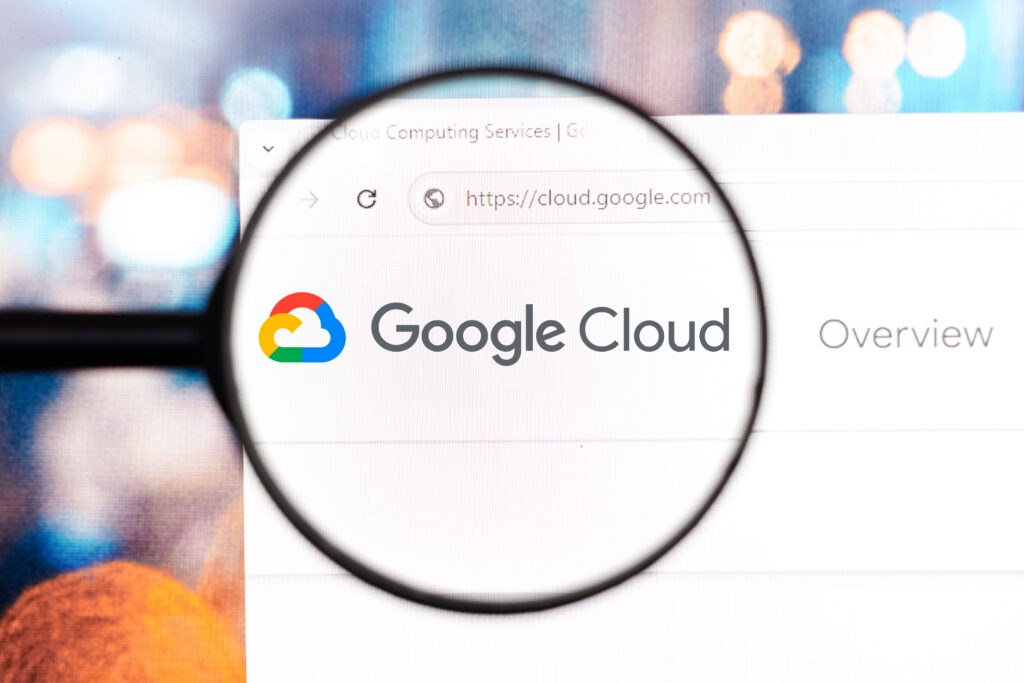Progress in AI is moving fast. To stay competitive, cloud platform’s machine learning offerings need constant improvement. Google Cloud has boosted its Vertex AI service to keep pace with Microsoft’s Azure Machine Learning and Amazon Web Services’ SageMaker suites. The latest Vertex AI updates integrate better with popular data science frameworks like TensorFlow and PyTorch while improving model training speeds. With these advancements, build, deploy, and monitor ML models faster on Google Cloud. But how much of an edge does Vertex AI really have over rivals now? Keep reading to learn about the key upgrades and how they stack up to competitors.
Overview of Google Cloud’s Vertex AI Platform
Powerful Integrations
- Google Cloud’s Vertex AI provides seamless integration with various AI tools and frameworks such as TensorFlow, PyTorch, and SciKit-Learn. This allows data scientists and ML engineers to leverage their preferred frameworks when building and deploying models on Vertex AI.
Scalable Infrastructure
- Vertex AI is built on Google Cloud’s highly scalable infrastructure, providing access to GPUs, TPUs, and fast networking. This scalable infrastructure ensures fast training of large ML models and low latency inference at scale.
Robust Security and Governance
- Vertex AI has robust security, privacy, and governance controls built in. This includes identity and access management, audit logging, and data encryption. Vertex AI is also SOC 2 and ISO 27001 certified, meeting the highest standards for security and compliance.
Accelerated Development
- Vertex AI integrates with tools like AI Hub, AI Platform Notebooks, and AI Platform Pipelines to provide an end-to-end ML workflow. This integration accelerates the development of ML models from data processing to training to deployment.
Global Availability
- Vertex AI is available globally across Google Cloud’s regions and zones. This global availability ensures low-latency access to ML models for users around the world. It also provides flexibility in where data and models are stored and processed to meet data residency requirements.
In summary, Google Cloud’s Vertex AI provides a powerful, integrated platform for building and deploying ML models at scale. With its robust features and seamless integrations, Vertex AI is a compelling offering for any organization looking to leverage AI and ML.
Key Improvements to Vertex AI Performance
Enhanced Compute Options
- Vertex AI now offers GPUs and TPUs to accelerate training and inference for AI workloads. GPUs provide a low-cost option for experimentation while TPUs offer the highest performance for training and inference at scale. Using accelerated computing, data scientists can train models up to 50 times faster compared to CPU-only.
Broad Framework Support
- Vertex AI supports all major AI frameworks like TensorFlow, PyTorch, XGBoost, and scikit-learn. Data scientists have the flexibility to use their preferred framework without being locked into a proprietary solution. Vertex AI also simplifies deploying models built in any framework by handling the underlying infrastructure challenges.
Managed JupyterLab Environments
- Data scientists can spin up fully managed JupyterLab environments with all AI dependencies and frameworks pre-installed. Environments come with GPU and TPU access for accelerated training and inference. JupyterLab provides an intuitive interface for data exploration, cleaning, visualization, and model building.
Integrated with BigQuery
- Vertex AI is deeply integrated with BigQuery, Google’s serverless data warehouse. Data scientists can easily ingest raw data, explore and clean it using SQL, and then feed the processed data directly into AI models for training and inference. BigQuery’s scalability and cost-effectiveness make it an ideal data source for AI workloads of any size.
Simplified ML Pipelines
- Vertex AI offers pre-built ML pipelines to automate the steps of the ML lifecycle – data ingestion, preprocessing, training, evaluation, deployment, and monitoring. Pipelines simplify model building, accelerate time to value, and enable reproducible research. Data scientists can customize pipelines or build new ones to match their unique workflows.
With significant improvements across computing, frameworks, environments, data integration, and MLOps, Vertex AI is poised to become the platform of choice for any organization looking to leverage AI. By simplifying infrastructure complexities, Vertex AI allows data scientists to focus on what really matters – building innovative models that drive business impact.
Enhanced Integration With TensorFlow, PyTorch, and Other Frameworks

Vertex AI now offers enhanced integration with popular open-source AI frameworks like TensorFlow, PyTorch, and XGBoost. With a few clicks, data scientists and engineers can deploy models built with these frameworks on Vertex AI.
TensorFlow Integration
- Vertex AI makes it easy to deploy TensorFlow models. After training a model, simply export it as a TensorFlow SavedModel. Then in the Vertex AI console, create a model resource and point it to your SavedModel. Vertex AI will handle the rest, allowing you to invoke your TensorFlow model through the Vertex AI APIs and UI.
PyTorch Integration
- For PyTorch models, the process is similar. Export your model as a .pth file, then create a Vertex AI model resource pointing to that file. Your PyTorch model can then be deployed and accessed through Vertex AI. Vertex AI supports PyTorch models with or without dependencies on custom libraries or packages. If your model does have dependencies, simply bundle them with your .pth file for deployment.
Other Framework Integration
- In addition to TensorFlow and PyTorch, Vertex AI also supports XGBoost, Scikit-Learn, SparkML, and most other popular open-source ML libraries. The process is the same – export your trained model in a format compatible with the framework (e.g. XGBoost BOOSTER files), then point your Vertex AI model resource at that exported model.
- Vertex AI handles the complexity of deploying models built with various frameworks so you can focus on what really matters – building great AI applications. With Vertex AI’s framework integrations, your data science and engineering teams have the flexibility to choose the right tools for their projects while still being able to easily deploy their models at scale.
Overall, Vertex AI’s enhanced integration with major AI frameworks provides data scientists and ML engineers a way to productize their models with greater ease and efficiency. Teams can build with their framework of choice, and then deploy to production through a consistent platform in Vertex AI.
Comparing Vertex AI to Azure Studio and AWS Bedrock
Improved Performance
- Google Cloud’s Vertex AI provides better performance over competing services like Microsoft Azure AI Studio and Amazon Web Services’ Bedrock. Vertex AI leverages Google’s advanced machine learning technologies and powerful computing infrastructure to deliver faster training times, lower latency, and higher throughput. The platform makes it easy to deploy models into production with pre-built containers and integrations with TensorFlow, PyTorch, and Scikit-learn.
Broader Tool Integration
- Compared to Azure Studio and AWS Bedrock, Vertex AI offers superior integration with leading open-source AI tools and frameworks. The platform natively supports TensorFlow, Keras, PyTorch, scikit-learn, XGBoost, and OpenCV. Google Cloud also provides managed services for Kubeflow, Ray, and Nuclio to simplify the deployment of machine learning pipelines and serverless functions. This broad tooling support lets data scientists and engineers choose the right technologies for their needs without being locked into a single framework.
Simplified Management
- Vertex AI simplifies the management of machine learning projects with a user-friendly console and API. Data scientists and ML engineers can easily organize projects, deploy models, monitor metrics, and manage data pipelines through an intuitive web UI or programmatically through the Vertex AI API. Administrators gain a centralized view of all AI assets and resources across the organization with role-based access control, audit logging, and billing reports. Compared to the basic functionality offered in Azure Studio and AWS Bedrock, Vertex AI provides a more comprehensive set of management capabilities tailored for enterprise machine learning.
In summary, Google Cloud’s Vertex AI leads competing services from Microsoft and Amazon with superior performance, broader integration with AI tools and frameworks, and simplified management functionality purpose-built for machine learning. For organizations looking to scale AI, Vertex AI is a compelling platform that accelerates time to value.
Vertex AI Use Cases and Customer Success Stories
Real-Time Personalization
- Vertex AI enables companies to leverage machine learning models for real-time personalization of customer experiences. Its integrations with BigQuery, Cloud SQL, and other data storage services provide access to large datasets that can be used to train models. These models then make predictions that personalize website content, product recommendations, and marketing campaigns. For example, an e-commerce company used Vertex AI to build a recommendation system that provides personalized product suggestions for each customer.
Predictive Maintenance
- Vertex AI is also useful for predictive maintenance, which involves using machine learning to predict when industrial equipment may fail or require servicing. By analyzing historical sensor data, maintenance schedules can be optimized, and costly downtime can be avoided. An aircraft engine manufacturer employed Vertex AI to detect anomalies in engine performance that could indicate future problems. By flagging these issues early, the company has been able to reduce unscheduled maintenance events by over 50%.
Virtual Assistants
- Vertex AI powers virtual assistants that can understand speech and text, and then respond with appropriate answers or actions. Its integration with Dialogflow allows companies to build conversational AI systems that act as automated assistants. A telecommunications provider built a virtual assistant using Vertex AI and Dialogflow that can answer customer questions about their account, provide billing information, and handle service requests. Since launching, the assistant has reduced call volume to the support center by over 25%.
The use cases for Vertex AI span many industries, but they share a common goal of using machine learning to solve complex challenges, reduce costs, and improve experiences. With continued enhancements to its AI and machine learning services, Google Cloud is poised to enable more innovative applications of artificial intelligence through Vertex AI.
Keeping It Short
You have now seen how Google Cloud’s recent Vertex AI improvements position them as a formidable competitor in the cloud AI platform space. With performance boosts, tighter integrations, and new features like AutoML Video and Vision, Vertex AI can meet a wide range of AI needs for enterprises. As always, evaluate all options thoroughly for your use case. But with these advances, Google Cloud and Vertex AI deserve strong consideration if you’re seeking an end-to-end, cloud-native AI development platform. Keep an eye out for more enhancements as this space continues to rapidly evolve.
More Stories
SAP’s Cloud Crusade: Leadership Anchored as ERP Transformation Accelerates
SAP has extended CEO Christian Klein’s contract until April 2030 and CFO Dominik Asam’s until March 2028. This decision highlights the company’s commitment to cloud transformation.
Amazon’s ‘Get Book’ Button Breaks Apple’s Grip on iOS Kindle Purchases
Amazon has introduced a “Get Book” button in its iOS Kindle app, marking a pivotal moment in the ongoing battle over digital purchase control.
Gamuda Powers Malaysia’s Digital Leap with Google’s Data Center Deal
Google has awarded Gamuda Berhad a significant contract to develop a hyperscale data center in Malaysia. This collaboration highlights Google’s investment strategy to strengthen cloud infrastructure and AI capabilities in Southeast Asia.
Agent Hospital: China’s AI Doctors Redefine Global Healthcare Frontiers
China’s “Agent Hospital” emerges as a revolutionary force in healthcare. Developed by Tsinghua University, this groundbreaking facility boasts the world’s first fleet of fully AI-driven medical professionals.
Fintech Alliance PH Welcomes Paynamics to Strengthen Digital Payments Ecosystem
In the Philippines' financial technology sector, Fintech Alliance PH announces a pivotal collaboration with Paynamics Technologies Inc. This partnership signals...
Spotify Unveils ‘Plays’ Count, Turning Podcasts into a Popularity Contest
Spotify has taken a bold step by unveiling a new “plays” count feature for podcasts, a move that promises to redefine the dynamics of content popularity. This innovation introduces a level of transparency akin to the metrics seen on video platforms, turning podcasting into a competitive arena where every play counts.


